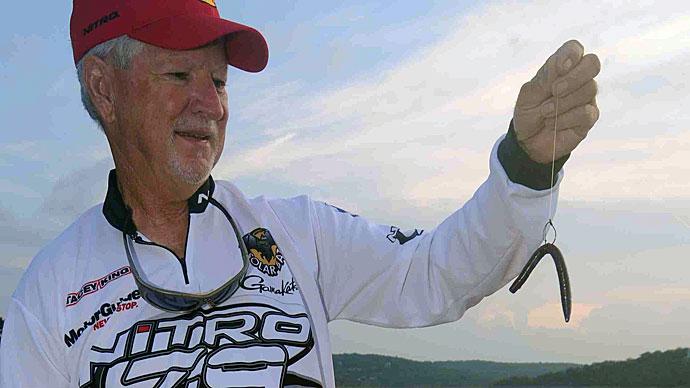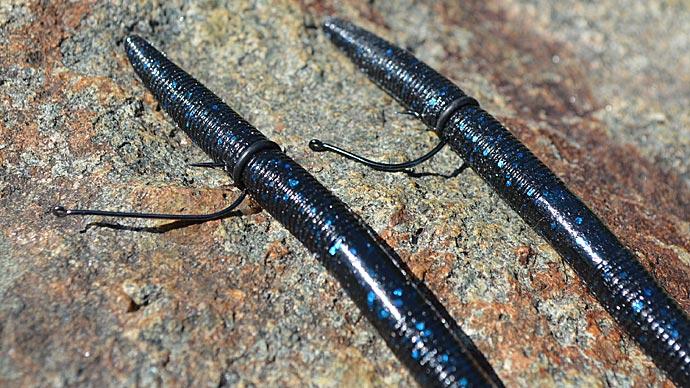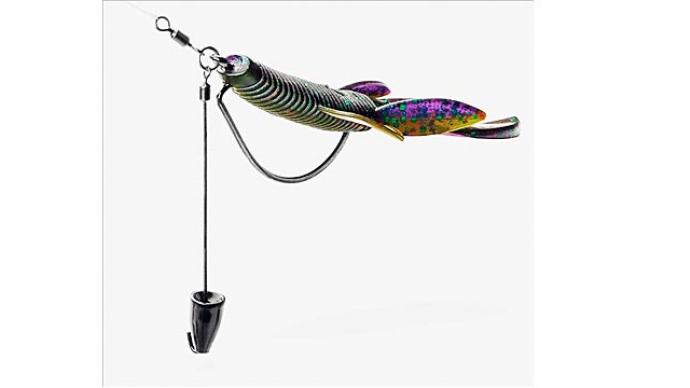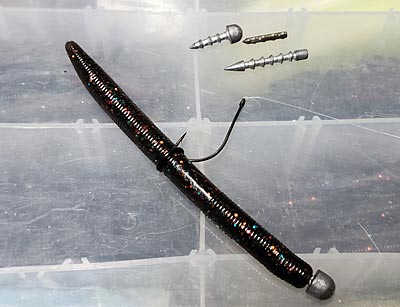
Over the past few years, the Neko Rig has become a go-to for anglers across the country. The versatility and effectiveness of fishing soft plastics have taken bass fishing by storm, and the method continues to evolve.
What is the Neko Rig?
In simplest terms, the rig is a wacky-rigged soft plastic bait with a weight inserted into one side of the bait.
The result of rigging a bait this way is a vertical fall, allowing the bait to stand upright on the bottom, and due to the added weight, it lets the bait fall to deeper depths much faster than a weightless soft plastic bait.
There isn’t a wrong time, place, or season to fish a Neko Rig, and it has proven itself everywhere.
Baits and Terminal Tackle Requirements
One of the most incredible things about using a Neko Rig is that virtually any soft plastic bait will work. Straight worms and soft stick baits are popular choices because the vertical fall that happens when rigging a bait this way is best suited for straight worms, but don’t be afraid to experiment with creature baits, craws, and even soft-plastic jerkbaits.
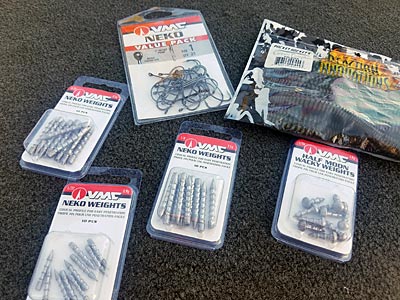
Even though just about anything will work, a Senko or similar style bait or a five to six-inch straight tail worm will be your best bet and covers most situations.
As the rig has evolved, more companies are designing Neko-specific gear, including specialized straight shank hooks and lead and tungsten weights to insert into your plastics. The consensus is that a straight shank hook is best for lure action and hookup percentage.
Regarding weights, tungsten is smaller and easier to use but comes with a higher cost. Lead is a suitable option; there are many different options. But, you could use items you find at a hardware store like nails and screws and generally get the same results.
One thing to remember is the weight size, which can significantly impact how quickly or slowly a bait falls to the bottom. Some days a faster fall is what triggers a bite, and other days, a slower fall is better. A good starting point for Neko Rig weight size is 3/32; you can increase or decrease it as needed. As with anything in bass fishing, it is always best to experiment until you find out what the bass want that day.
Another helpful tool when fishing a Neko Rig (and all wacky-rigged baits) is an O-Ring or some way to protect your baits from tearing. Some companies make special tools to aid in adding an O-Ring, and some have started to produce rubber pieces that can be added with special pliers.
The benefit of using these items is prolonging your soft-plastic. It also allows the hook to be rigged perpendicularly instead of inline with the bait. This also helps with a better hookup percentage.
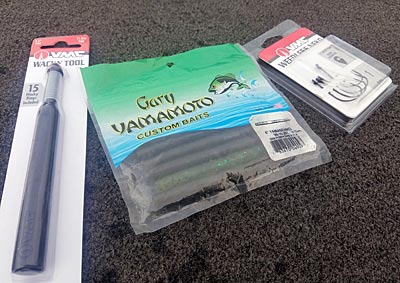
Neko Rig Gear
Most anglers fish a Neko Rig on spinning gear for ease of casting and fishing the rig, but a baitcast combo used for standard worm fishing will suffice. The benefits of spinning gear are the ability to open the bait easily to let the rig fall back down if needed.
A seven-foot medium spinning rod with a 2500-sized spinning reel will be an ideal setup for a Neko Rig. For line, a high visibility braided line like Seaguar’s Flash Green Smackdown braid helps detect subtle bites as the Neko Rig falls. Their 20-pound Smackdown paired with a leader of 10-pound Seaguar Tatsu fluorocarbon will allow you to have the strength and casting distance of a quality braided line paired with the invisibility of fluorocarbon.
Fishing the Neko Rig
Now that you have the gear down, a simplistic way to approach fishing the Neko Rig is to cast the bait, let it fall, and then work it back to you. The nature of the weighted plastic creates most of the action you need, and bringing it back with short hops will catch fish, but there are a few other things to elicit more bites.
One time when many bites occur is when the bait initially descends towards the bottom. If the water is relatively clear, the bass can see the rig falling from a long distance and will often bite it as soon as it hits bottom or within a few shakes of the rod.
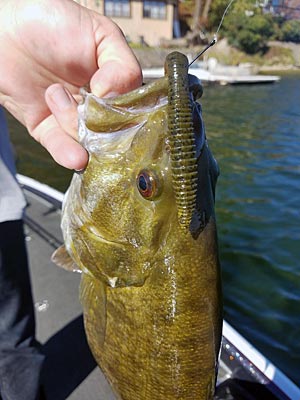
To re-create the great falling action of the rig later during the retrieve, lift your rod high, reel up some line, and then let it fall again on a slackline. This will allow you to replicate that initial drop, which often results in more bites.
If bass are not biting the bait as the Neko Rig falls that particular day, you can fish it slowly along the bottom, much like you would with a shaky head or drop-shot rig. But rest assured, there is no wrong way to fish a Neko Rig.
It can also be fished very slowly and dragged along the bottom or used as a way to search for bass by casting, letting it fall to the bottom, reeling it in, and beginning the process again.
Where to Neko
One of the best things about fishing a Neko Rig is that it can be done anywhere, but some areas tend to be better than others.
Deep docks and the ends of long points are two of the best areas to throw a Neko Rig; if there is brush or submerged wood around, that is even better. Rocks, offshore humps, and steep walls are three other high-percentage spots for using a Neko Rig.
The Neko Rig has proven to be one of the best ways to catch bass in all situations. The simple addition of a weight to proven soft-plastic baits has expanded where and how they can be used. If you are looking for a way to fish both shallow and deep and both quickly and fast, the Neko Rig is a great way to do it.
BassResource may receive a portion of revenues if you make a purchase using a link above.


